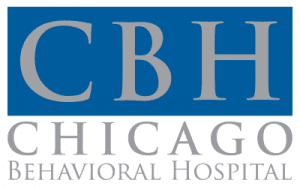Understanding Various Chemical Dependencies
Watching your child or sibling struggle with chemical dependency can be hard to witness and even harder to help them overcome. Some family members might think it is an addiction that can simply be stopped by going “cold turkey” or by limiting the persons’ intake down to a more acceptable level. But taking this away from them can cause additional issues such as physical withdrawal pain, severe mental distress, and more. Chicago Behavioral Hospital has been helping youth learn how to overcome the demanding need for certain chemicals and to move on to a successful treatment plan.
The Range of Chemical Addiction and Dependencies
While some forms of chemical addictions may be considered socially acceptable, such as alcohol or nicotine, they can all take a severe toll on the body. Being able to identify the signs of a dependency or addiction, as well as what may be the cause, is the first step to finding treatment.
- Alcohol is one of the most socially acceptable items on the list, it can lead to addiction and dependency just as easily. Being eager to drink socially and privately, hiding or feeling ashamed of your drinking habits may all be signs of an addiction.
- Smoking is the second most socially acceptable item next to alcohol use. Being unable to stop smoking for more than a short amount of time, ignoring health issues that arise, and a physical and mental inability to stop smoking are all signs of an addiction.
- Prescription opiates falls under a more serious category and can start innocently enough with the use of pain pills for an injury or illness. Once becoming fond of the feeling they provide, some people may start trying to obtain them from friends and family, or by lying to doctors and other health care professionals.
- Inhalants is one of the easiest addictive chemicals to obtain, inhalants may include paints, glue, hair sprays, Sharpie markers, or lighter fluids. Inhaling the odor from these products gives a hallucinogen type feel and can cause slurred speech and lack of coordination.
- Heroin is one of the more serious addictions one can fall into. Heroin changes the chemical balance of the brain to trigger feelings of relaxation and euphoria.
Once you notice a friend or family member might have an issue, try talking with them. Some people may be open to help, and others may resist it. When a serious approach needs to be made, contacting Chicago Behavioral Hospital in Chicago IL could change lives for the better.


